
Copernical Team
President Biden Reveals First Image from NASA’s Webb Telescope
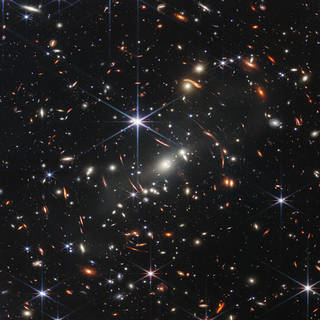 President Joe Biden released the first full-color image from NASA’s James Webb Space Telescope Monday, during a public event at the White House in Washington.
President Joe Biden released the first full-color image from NASA’s James Webb Space Telescope Monday, during a public event at the White House in Washington. Biden revela la primera imagen del telescopio Webb de la NASA
 El presidente Joe Biden hizo pública el lunes la primera imagen a todo color del telescopio espacial James Webb de la NASA, durante un acto público en la Casa Blanca en Washington.
El presidente Joe Biden hizo pública el lunes la primera imagen a todo color del telescopio espacial James Webb de la NASA, durante un acto público en la Casa Blanca en Washington. Webb’s first deep field
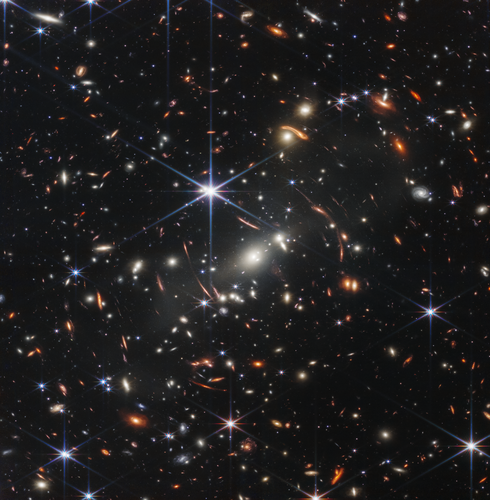 Image:
Webb’s first deep field
Image:
Webb’s first deep field Webb delivers deepest infrared image of Universe yet in special briefing

The international NASA/ESA/CSA James Webb Space Telescope has delivered the deepest, sharpest infrared image of the distant Universe so far.
U.S. President Joe Biden unveiled the image of galaxy cluster SMACS 0723, known as Webb’s First Deep Field, during a White House event on Monday 11 July.
How scientist applied the recommendation algorithm to anticipate CMEs' arrival times
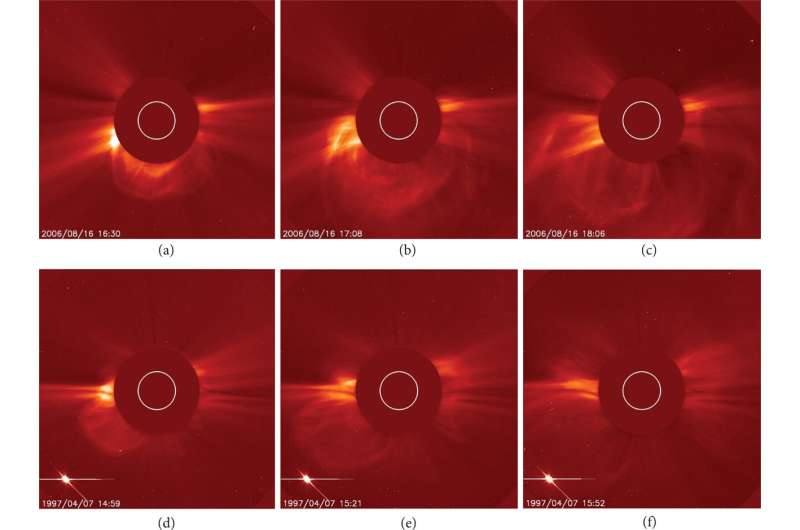
Coronal mass ejections (CMEs) are eruptive solar events. They are often associated with solar flares and filaments. CMEs can cause space weather events such as geomagnetic storms, high energy electron storms, hot plasma injection, ionospheric storms, and increased density in the upper atmosphere.
Large CME events can impact communications, navigation systems, aviation activities, and even power grids.
No damage to Relativity Space rocket at Cape Canaveral from fire at launch site, CEO says
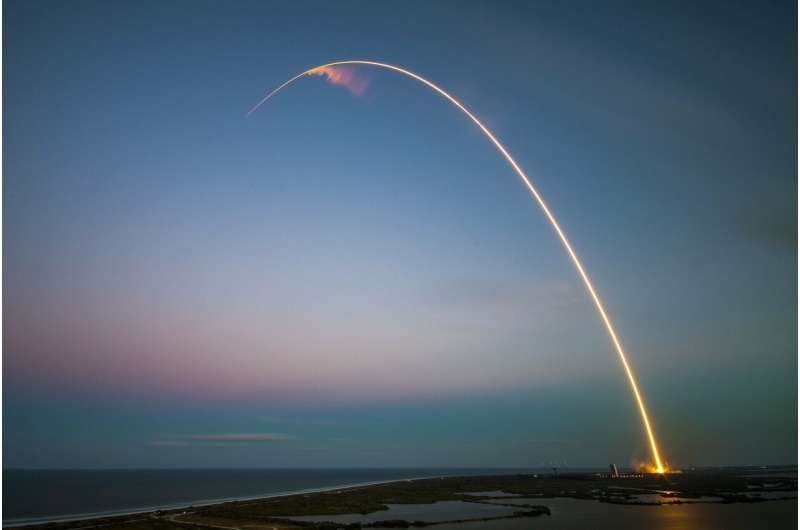
New rocket company Relativity Space is gearing up for its first ever launch testing its Terran 1 rocket at Cape Canaveral Space Force Station, and a fire spotted at the launch site prompted its CEO to reassure people the rocket was fine.
Images posted of flames and smoke rising from Launch Complex 16 by media outlet Talk of Titusville on Twitter had Relativity cofounder and CEO Tim Ellis commenting the rocket was well, and the launch pad damage was minimal.
"This grass fire was outside the rocket, from methane flare stack," Ellis said. "The team and rocket are all safe, and minimal to no pad damage either. Mostly grass."
Relativity's 3D printed rocket arrived to from its factory in Long Beach, California, to the Space Coast last month prepping for a mission dubbed "GLHF," as in "Good Luck, Have Fun," which won't be carrying any customer payloads, but will aim to prove it can perform for future missions when it attempts lift off later this year. A target launch date has not been determined, but earlier company statements said it was targeting before the end of summer.
'The start of something wonderful': First full-color images from James Webb telescope to be released Tuesday
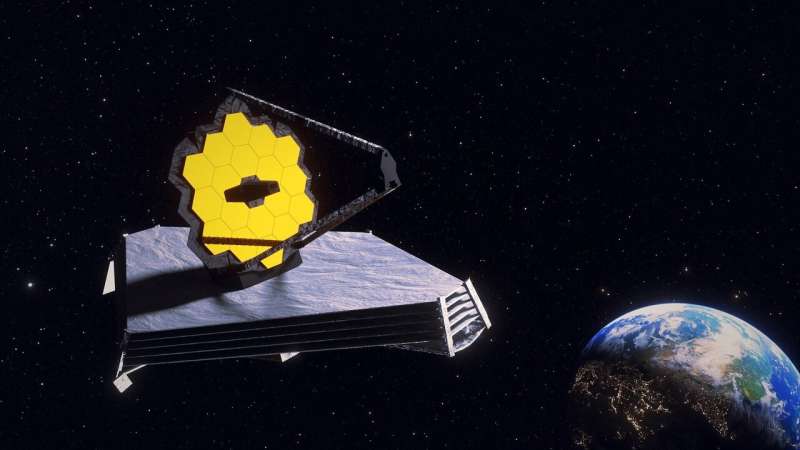
Lately, the hallways at the Space Telescope Science Institute in Baltimore have been filled with a few more smiles than usual.
Giddy excitement is in the air, anticipating the public release this week of the first significant, full-color images to come from the James Webb Space Telescope, said Susan Mullally, deputy project scientist for the telescope.
Staff at the institute, which operates the revolutionary telescope, have put the finishing touches on the public's first look at the power of Webb to observe what was once unobservable—distant galaxies, the atmospheres of faraway planets.
On Tuesday, the center on Johns Hopkins University's campus will open its doors to a host of scientists, journalists and other eager onlookers to unveil Webb's initial round of observations—ones curated by staffers to showcase the telescope's unique capabilities, with the goal of awing even the most uninspired.
NASA on Friday released a list of the objects captured for Webb's first set of images, including one of the brightest nebulae in the sky, a giant gaseous planet nearly 1,150 light-years from Earth and a quintet of galaxies "locked in a cosmic dance of repeated close encounters.
NASA's Perseverance rover scouts Mars Sample Return Campaign landing sites

NASA's Perseverance Mars rover is conducting its science campaign, taking samples at Jezero Crater's ancient river delta, but it's also been busy scouting. The rover is looking for locations where the planned Mars Sample Return (MSR) Campaign can land spacecraft and collect sample tubes Perseverance has filled with rock and sediment.
T - 2 days to inaugural Vega-C launch: watch it live
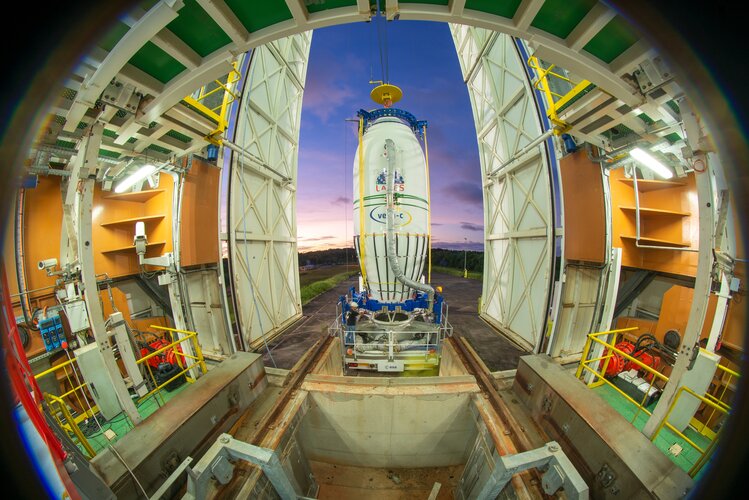
ESA’s new Vega-C rocket is nearly ready for its inaugural flight. You can follow live on ESA Web TV. Flight VV21 will lift off as soon as 13 July at 13:13 CEST, pending suitable conditions for launch.
Broadcast begins 12:45 CEST/11:45 BST on ESA Web TV
13:13 CEST/12:13 BST – liftoff
ESA by Interrail
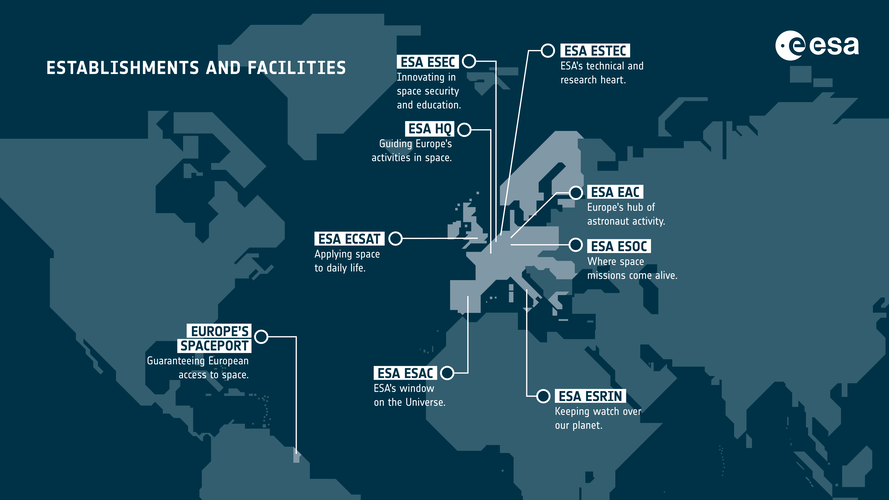
Vincent Müller, a recent school-leaver, will visit all of ESA’s European sites in the next two weeks. The lucky winner of a free Interrail ticket from the DiscoverEU programme, he decided to use the ticket to make this journey and will share his experiences in a blog to enthuse young people to pursue a career in space.

